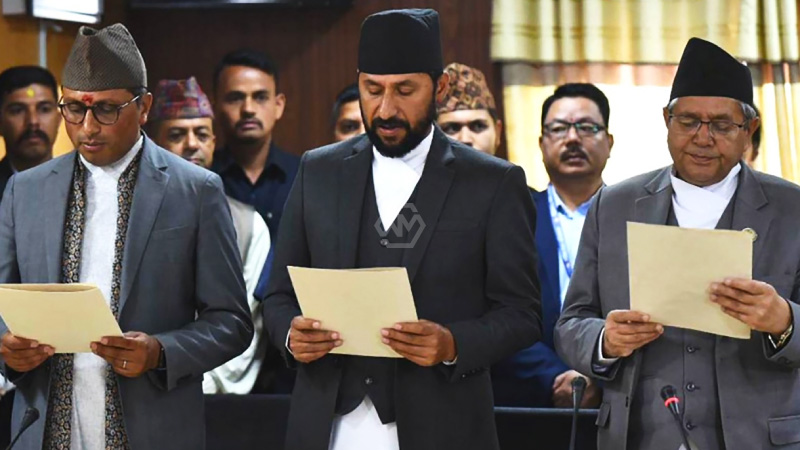With Rabi Lamichhane’s victory and Swarnim Wagle’s emergence as a resolute leader of Tanahun-1, the Rashtriya Swatantra Party (RSP) has strengthened its position as a legitimate alternative to the established political groups.
Wagle’s triumph has supported his argument that there isn’t much time left and that Nepal has a limited window of opportunity to improve its economic and social metrics before it starts to age. His political gambit has been successful.
The Political Development
Since they have access to the outside world and are making their own decisions, young people are disproving the old parties’ pervasive culture of political patronage. Young voters are making independent decisions and have a broader perspective.
To level the playing field and weaken the influence of vested elites, democracies pursue political competition, which has consequences for democracy. In his book Political Man, Seymour Lipset argues that democracy is both a political and cultural system.
- RSP has strengthened its position as a legitimate alternative to the established political groups.
- Young people are disproving the old parties’ pervasive culture of political patronage.
- People make choices based on logical calculations that support their own goals.
The recent political developments in Nepal are similar to that book. To demand morality from others but not practice it oneself is hypocritical. Politicians frequently address opportunism and sacrifice, noting that several factors might affect how people act. It’s common to view opportunism unfavorably while lauding sacrifice.
Politicians frequently strive to balance opportunism and sacrifice carefully because the two are not mutually incompatible. When he gave his approval to the contentious and dangerous operation that killed Osama bin Laden, Barack Obama demonstrated both opportunism and sacrifice.
Opportunism and sacrifice must coexist in politics to effectively serve voters and further the common good. According to the rational choice theory, people make choices based on logical calculations that support their own goals.
Voter turnout, polarization, and the number of parties all have an impact on how competitive politics are, and people are more motivated to participate in politics when they see the rewards.
The lack of openness and competitiveness in Nepal’s multiparty system encourages corruption, nepotism, and other forms of power abuse. Elections in 2022 were less ideologically motivated and more concerned with obtaining a ticket from a preferred coalition.



